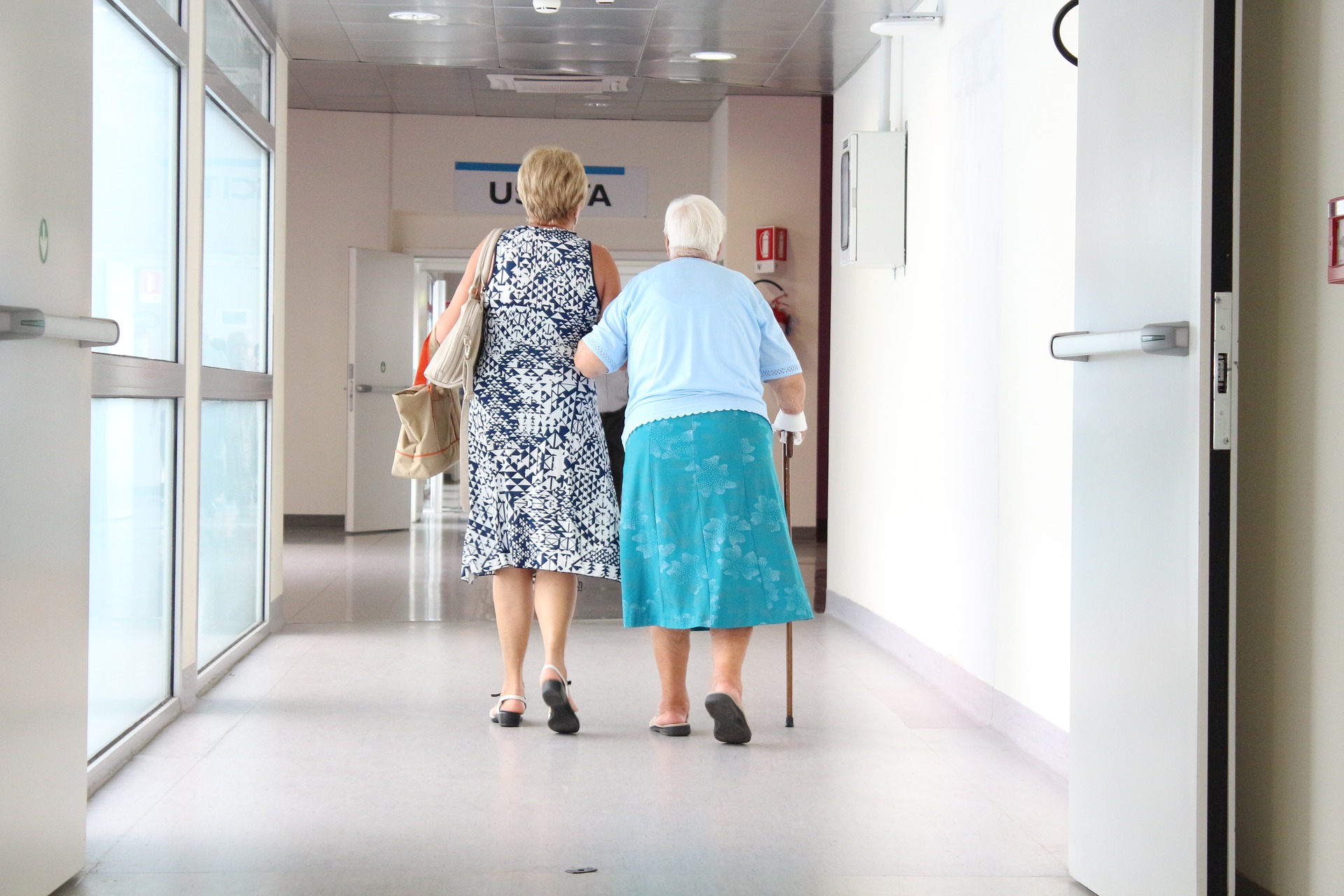The Female Fight Against Ovarian Cancer!
1
Hey Ladies! We need to get serious for a minute and talk about a global issue impacting the lives of 200,000 women globally, per year – ovarian cancer. This disease is claiming more than 140,000 lives per year, and it’s about time we changed that statistic! Apart from donating our time and money towards research and patient care, we can change these statistics by becoming educated in the dangers and prevention methods of ovarian cancer.
Ovarian cancer forms in a woman’s ovaries. From there, this cancer can spread to major vital organs as it
SelfishMother.com
2
worsens over time. To beat this disease, an early diagnosis is imperative, and here lies the biggest battle that women, researchers, and doctors face when it comes to ovarian cancer. The disease is downright difficult to diagnose!
Many women believe that they are tested for ovarian cancer in their annual gynecologist appointment, and unfortunately, this is a major misconception. Ovarian cancer has no standard method of testing. While there are several tests that may indicate a risk for ovarian cancer, the only way to accurately confirm a diagnosis
SelfishMother.com
3
is through a biopsy.
Now you may be asking yourself – what about symptoms? Ovarian cancer does have symptoms that can clue a woman in, however, these symptoms can be confusing and are often mistaken for other maladies. Let’s look at a handful of common ovarian cancer symptoms; a woman might experience bloating, fatigue, menstrual changes, pelvic or abdominal pain, and back pain. Sounds familiar, doesn’t it? Most often, the symptoms of this disease are chalked up to a woman’s “time of the month,” and don’t receive the vital attention that
SelfishMother.com
4
they deserve from a gynecologist. It’s incredibly important for women to monitor their monthly experiences and note any changes that may occur. Informing your doctor of these subtle changes could be life-saving!
So we know some of the symptoms. Let’s learn about who is most at risk for this disease.
Age – Women approaching fifty years of age or nearing post-menopause have a greater risk of developing ovarian cancer. However, women of all ages are at risk.
Medical history – Women with a past breast or cervical cancer diagnosis are more
SelfishMother.com
5
at risk as well as those women with family members who experienced breast or ovarian cancer. Get informed about your family’s medical history.
Genetic mutations – You may have heard about the genetic mutations BRCA1 and BRCA2 being high-risk indicators for breast cancer. These same mutations also signify a higher risk for ovarian cancer as well. Get tested, and be aware of your potential risk.
Talcum powder – Scientific findings and recent court verdicts in the United States have determined a correlation with ovarian cancer and baby powder
SelfishMother.com
6
containing talc. Women who use talc-based baby powders around their vaginas for personal feminine hygiene may be more susceptible to develop ovarian cancer in their lifetime.
Weight – Women with a body mass index over 30 are at greater risk for ovarian cancer and a number of other life-threatening diseases including heart disease and diabetes. Keeping a healthy diet and regular exercise routine is important to maintaining good health!
Women who have never given birth, taken oral contraceptives or undergone a hysterectomy will also be at a greater
SelfishMother.com
7
risk for ovarian cancer. These experiences all affect the ovaries by reducing and regulating ovulation in a woman’s body, thereby lowering a woman’s risk for ovarian cancer.
At this time in your life, you may think of ovarian cancer very infrequently. Maybe this is the first time you’ve ever thought of it at all. Hopefully, though it’s not the last. Just because it has affected you yet, doesn’t mean it won’t. This isn’t a post to scare you; it’s a post to inform you. Talk to your doctor and make sure that you are leading a healthy life
SelfishMother.com
8
and doing everything you can to lower your risk for ovarian cancer. If you remain mindful about this disease, then in the event that you do, in fact, develop ovarian cancer, you will have much better chances of an early diagnosis and a successful treatment. Please share this life-saving information with the women closest to you today, and let’s beat the statistics, keeping more women safe from ovarian cancer globally!
SelfishMother.com
This blog was originally posted on SelfishMother.com - why not sign up & share what's on your mind, too?
Why not write for Selfish Mother, too? You can for free and post immediately.
We regularly share posts on @SelfishMother Instagram and Facebook :)
Caitlin Hoff - 11 Oct 17
Hey Ladies! We need to get serious for a minute and talk about a global issue impacting the lives of 200,000 women globally, per year – ovarian cancer. This disease is claiming more than 140,000 lives per year, and it’s about time we changed that statistic! Apart from donating our time and money towards research and patient care, we can change these statistics by becoming educated in the dangers and prevention methods of ovarian cancer.
Ovarian cancer forms in a woman’s ovaries. From there, this cancer can spread to major vital organs as it worsens over time. To beat this disease, an early diagnosis is imperative, and here lies the biggest battle that women, researchers, and doctors face when it comes to ovarian cancer. The disease is downright difficult to diagnose!

Many women believe that they are tested for ovarian cancer in their annual gynecologist appointment, and unfortunately, this is a major misconception. Ovarian cancer has no standard method of testing. While there are several tests that may indicate a risk for ovarian cancer, the only way to accurately confirm a diagnosis is through a biopsy.
Now you may be asking yourself – what about symptoms? Ovarian cancer does have symptoms that can clue a woman in, however, these symptoms can be confusing and are often mistaken for other maladies. Let’s look at a handful of common ovarian cancer symptoms; a woman might experience bloating, fatigue, menstrual changes, pelvic or abdominal pain, and back pain. Sounds familiar, doesn’t it? Most often, the symptoms of this disease are chalked up to a woman’s “time of the month,” and don’t receive the vital attention that they deserve from a gynecologist. It’s incredibly important for women to monitor their monthly experiences and note any changes that may occur. Informing your doctor of these subtle changes could be life-saving!
So we know some of the symptoms. Let’s learn about who is most at risk for this disease.
- Age – Women approaching fifty years of age or nearing post-menopause have a greater risk of developing ovarian cancer. However, women of all ages are at risk.

- Medical history – Women with a past breast or cervical cancer diagnosis are more at risk as well as those women with family members who experienced breast or ovarian cancer. Get informed about your family’s medical history.
- Genetic mutations – You may have heard about the genetic mutations BRCA1 and BRCA2 being high-risk indicators for breast cancer. These same mutations also signify a higher risk for ovarian cancer as well. Get tested, and be aware of your potential risk.
- Talcum powder – Scientific findings and recent court verdicts in the United States have determined a correlation with ovarian cancer and baby powder containing talc. Women who use talc-based baby powders around their vaginas for personal feminine hygiene may be more susceptible to develop ovarian cancer in their lifetime.
- Weight – Women with a body mass index over 30 are at greater risk for ovarian cancer and a number of other life-threatening diseases including heart disease and diabetes. Keeping a healthy diet and regular exercise routine is important to maintaining good health!
Women who have never given birth, taken oral contraceptives or undergone a hysterectomy will also be at a greater risk for ovarian cancer. These experiences all affect the ovaries by reducing and regulating ovulation in a woman’s body, thereby lowering a woman’s risk for ovarian cancer.
At this time in your life, you may think of ovarian cancer very infrequently. Maybe this is the first time you’ve ever thought of it at all. Hopefully, though it’s not the last. Just because it has affected you yet, doesn’t mean it won’t. This isn’t a post to scare you; it’s a post to inform you. Talk to your doctor and make sure that you are leading a healthy life and doing everything you can to lower your risk for ovarian cancer. If you remain mindful about this disease, then in the event that you do, in fact, develop ovarian cancer, you will have much better chances of an early diagnosis and a successful treatment. Please share this life-saving information with the women closest to you today, and let’s beat the statistics, keeping more women safe from ovarian cancer globally!

Did you enjoy this post? If so please support the writer: like, share and comment!
Why not , too? You can share posts & events immediately. It's free!
As a Health & Safety Investigator for ConsumerSafety.org, Caitlin uses her background in Industrial Design and her passion for health and wellness to educate consumers. She strives to help people make smart decisions affecting their personal health and that of their families.
LIST























